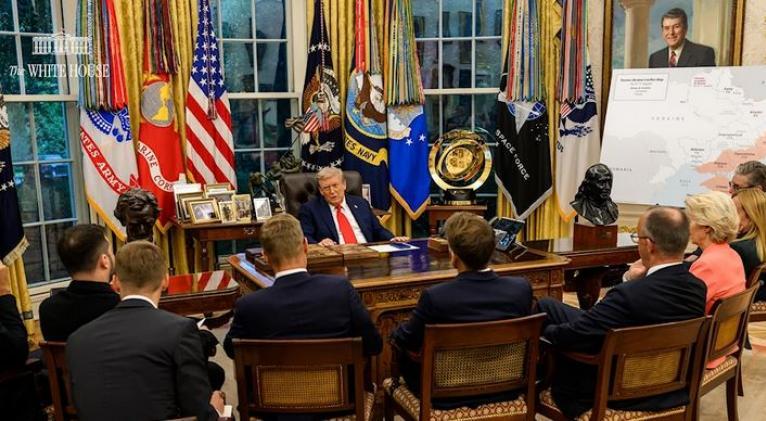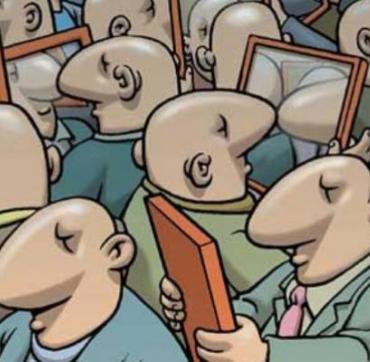Uncomfortable Mirror: What Trump’s Photo with European Leaders Reveals
especiales

The image spread across the globe in seconds: the leaders of Europe’s main powers seated in front of President Donald Trump’s desk in the Oval Office, aligned like students before a stern headmaster.
The Republican magnate gesticulated with vigor while they listened in silence. The scene, which unfolded on Monday, August 18, has been interpreted as a premeditated humiliation. The White House even introduced Trump as the “president of peace.” Yet beyond the symbolism, the photo exposes an uncomfortable geopolitical truth: Europe has spent months acting in submission, and this episode merely made visible what was already clear.
The past six months tell the story. Trump forced the European Union into a trade agreement that imposes a 15 percent tariff on its exports without meaningful concessions in return. He compelled allies to accept a disproportionate defense spending target of 5 percent of GDP within NATO. He sidelined them from negotiations on Ukraine and Gaza. Each time Europe tries to stand firm, it retreats. This is not an isolated humiliation; it is the chronicle of a long-announced dependency.
Europe’s vulnerability is structural. Its digital payments—credit cards, PayPal, Apple Pay—depend on U.S. companies. Its defense relies on NATO’s umbrella. Its economy rests on access to the American market. Trump did not invent this reality; he simply exploits it with brutal pragmatism.
Although Trump does not act as an instrument of historical justice but rather for his own interests, one cannot help but recall the “historical karma” at play. For centuries, Europe subjected Asia, Africa, and Latin America to exploitation and colonialism. Now, it finds itself in a position of subordination.
More troubling than military or commercial dependency is Europe’s strategic irrelevance. In the current Gaza crisis, the EU has been simply ignored—partly its own fault, as it delayed action while waiting to echo Washington. As civilians die under the bombs, Europe has failed to articulate a common position. Its voice no longer matters. As one European diplomat in Brussels put it recently: “We have become luxury spectators of our own decline.”
Still, it would be naïve to see only defeat in this crisis. Despite the embarrassing episode in Washington, some shifts are underway. France and the United Kingdom, historic rivals, are seriously discussing coordination of their nuclear arsenals. Germany and the UK are negotiating a mutual defense treaty. A coalition of countries—curiously led by Poland—is pressing for independent European military structures. The response is late but tangible, suggesting that something is moving in the face of Trumpism.
The real problem for Europe, however, is not Trump. It is the illusion that it can maintain its social model and global influence without bearing the costs of strategic autonomy. As long as its leaders think in terms of the next election instead of the next decades, they will remain seated in the back row of history.
The question is not whether Europe was humiliated in Washington, but whether it has the political will to stop being invisible. The time to choose between sovereignty and irrelevance is running out. And this time, there will be no Trump to blame if it fails.














Add new comment